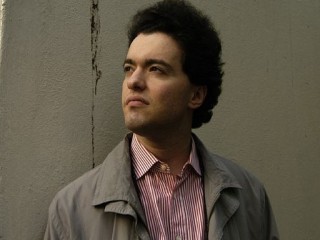
Evgeny Kissin biography
Date of birth : 1971-10-10
Date of death : -
Birthplace : Moscow,Russia
Nationality : Russian
Category : Arts and Entertainment
Last modified : 2011-12-07
Credited as : Pianist, Schumann's Symphonic Etudes , New York Philharmonic
2 votes so far
His mother, a piano teacher, never taught him, but instead sent him to Moscow's Gnessen School for musically gifted children, where he was enrolled through 1991. Kissin has had only one piano teacher, Anna Pavlovna Kantor, and has never entered the competitive recital circuit. Kissin's advanced interpretations and specialized skills have grown with intensive tutelage, yet his personality and individualism have remained intact. Kissin explained his personal philosophy of music to Time: "True art gives birth to good as opposed to evil. Right now we are going through a very turbulent time. The goal of musicians is to make our art, which is humane, kind and international, prevail over all the other things that are evil."
By the age of ten, Kissin was already becoming an international legend, without the benefit of an American debut. Harold C. Schoenberg, a music critic for the New York Times, was invited by conductor and violinist Vladimir Spivakov to hear Kissin play. Schoenberg recalled that "the boy had everything--fingers, tone, and an uncanny ability to know exactly when to modify a tempo, how to accent an inner voice, how to highlight a phrase in the subtlest and most musical of ways. All this at 12." In 1988 Herbert von Karajan, a conductor and talent scout, summoned Kissin to play the Tchaikovsky concerto with the Berlin Philharmonic. This attention earned Kissin offers from recording companies. Schoenberg described Kissin as a "Romantic pianist in the old Russian tradition." Some critics have suggested that Kissin's style is unspoiled because he avoids traditional performance competitions. Peter G. Davis, a music critic for New York, remarked that Kissin was outstanding because he "never had to [compete]." Generally, the competition school of piano demands a hard, even, and uniform technique in all of its students. Kissin's style stands out from his regulated peers. An emotional style of play, Romanticism, according to Schoenberg, "looks back to a period when a controlled sonority, a singing line, power without banging, tempo modification and poetry were what the great Slavic Romantic pianists represented."
Kissin made his long-awaited United States debut on September 20 of 1990, at the Avery Fisher Hall with the New York Philharmonic and received a standing ovation from the sellout crowd. A few days later he played a recital at Carnegie Hall. Donal Henahan of the New York Times attended Kissin's debut, and reported, "It is not often that a young pianist with the technical tools of a Mr. Kissin resists the urge to whip up visceral excitement purely by playing fast and loud.... At times he took an embroidered run so softly that the piano seemed to be murmuring Chopin's thoughts to itself, reminding a listener that, according to contemporary reports, that is exactly how the composer himself played his music." Remarks about the controlled power of Kissin's playing dominated reviews of these concerts. New York 's Peter G. Davis marveled that Kissin could "project the combative force of Prokofiev's warlike Sonata No. 6 quite this powerfully and yet temper the onslaught with so much expressive urgency."
Critic Michael Walsh wrote in Time of Kissin's performance of Schumann's Symphonic Etudes at the Carnegie Hall recital that the Russian played "the series of challenging variations as if he were inventing the piece as he went along." Attesting to the maturity of Kissin's interpretations in an Entertainment Weekly review of the album Yevgeny Kissin in Tokyo that included works by Rachmaninoff, Prokofiev, Liszt, Chopin, and Scriabin, Walsh concluded, "the point is simply that ... Kissin plays with the passion of a young man and the taste of an old one."
Kissin relaxes in the time allotted after more than thirty concerts a year by playing Scott Joplin rags and reading the works of Russian authors Pushkin and Tolstoy. Often described as quiet and nervous, Kissin projects a modest character. He downplayed his musical abilities by expressing his tentativeness to approach the works of German composer Ludwig van Beethoven. In an interview with Abigail Kuflik of Newsweek, Kissin remarked that "maybe it was easier for me as a young person to play romantic music, to play music with the heart. Beethoven it's nicer to play also with the mind. Maybe that's why I had to become old." It seems probable that the young Russian, armed with a durable talent based on sturdy philosophy, will survive prodigy intact and proceed to adult genius.
















